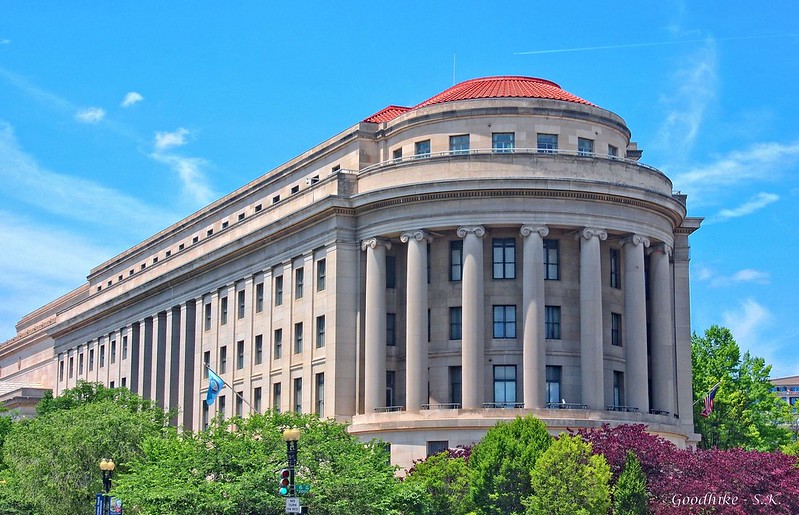Federal antitrust regulators today are far more aggressive in reviewing and challenging M&A transactions than at any time in recent memory.
What does this mean for private equity firms and the prospects for tech M&A deals in the months and years ahead?
Jefferies recently put this question to two antitrust experts – Jamillia Ferris and Jeffrey Peck – at our Private Technology Conference in Miami, and they agreed firms need to consider the potential for antitrust challenges early in the planning of any major deal.
Between September 2021 and September 2022, the U.S. Federal Trade Commission and the Department of Justice filed complaints against a record 13 transactions – compared to an average of six per year over the previous five years. The Biden Administration also reported that antitrust investigations in that time period resulted in 26 other mergers being abandoned.
This stepped up enforcement is being driven by the administration’s more expansive vision for what antitrust enforcement can achieve. In previous decades, federal antitrust regulators mostly hewed to a “consumer welfare” theory that allowed most mergers to go through so long as consumers were still getting low prices. But the FTC, led by Lina Khan, and the DOJ’s Antitrust Enforcement Division, led by Jonathan Kanter, increasingly see antitrust enforcement as a means to enhance market competition broadly defined, including economic inequality and wage disparities
In July, the Biden administration also announced new and tougher guidelines against tech and other mergers, after losing a number of high-profile cases in the courts.
Washington’s more forceful antitrust position has discouraged some companies from pursuing mergers and acquisitions they would’ve previously leapt at, as dealmaking has gotten costlier, more time consuming and riskier.
But there are still plenty of accretive M&A deals to be found in the technology sector so long as firms are mindful of several considerations that Jefferies’ Private Technology conference panelists shared from the stage.
- Avoid being on the wrong end of a Wall Street Journal story. Develop detailed messaging and an advocacy and communications plan to tell a complete story to the stakeholders who matter most. This might include members of Congress, Hill staffers, federal regulators, communities, customers, and others who will be impacted by a deal. As panelist Jeffrey Peck underscored at the conference, “strategic advocacy – mounting not only a legal effort but also developing and executing the key elements of what is, in effect, a political campaign – is a necessary ingredient for success in today’s environment.”
- Understand the antitrust landmines before you sign a deal so that you have adequately calibrated risk and are prepared for any investigation. As panelist Jamillia Ferris explained, there is a lot of work your antitrust team can do upfront, before you sign a deal, to be in the driver’s seat if an antitrust investigation is actually opened.
- Know what your customers will say. If an agency opens an investigation, it will ask your customers what they think of the deal. Your communications strategy should make a priority of helping customers understand why this deal is good for them – like providing lower prices, more choices, and better choices.
- Know what your competitors will say about your proposed deal and assume they will attack it. Competitors are increasingly approaching agencies with complaints and criticisms because they know that now, unlike in the past, officials are likely to listen. Be prepared to counter your competitors’ arguments.
- Define your market. Critics of Amazon’s market power often say that the company is responsible for almost half of all ecommerce sales in the U.S. But Amazon takes great pains to say it isn’t just an ecommerce company and is only responsible for one percent of world retail sales. Both numbers are true. Providing this kind of context about the market you operate in can often make or break an argument with antitrust regulators or with a judge, but it needs to be reflected in your business documents.
- Use both hard power and soft power. In antitrust battles, clashes are not just between lawyers in regulatory filings and official proceedings. Battles are also fought through the soft power of publicity, discussion, and the influence of public opinion. Keep in mind that in addition to reading official documents, regulators follow the news and talk to a wide range of people, including members of Congress.
The federal government’s more assertive antitrust posture is likely to persist well into the future.
Activist groups on both the left and right have increasingly been pushing for Washington to counter business consolidation and public trust in big business has been declining for years. If Republicans win back the White House next November, their antitrust priorities would almost certainly be different from those of the Biden administration. But the generally permissive antitrust posture that had persisted in Washington since the Reagan administration is unlikely to return anytime soon and dealmakers need to be prepared.
